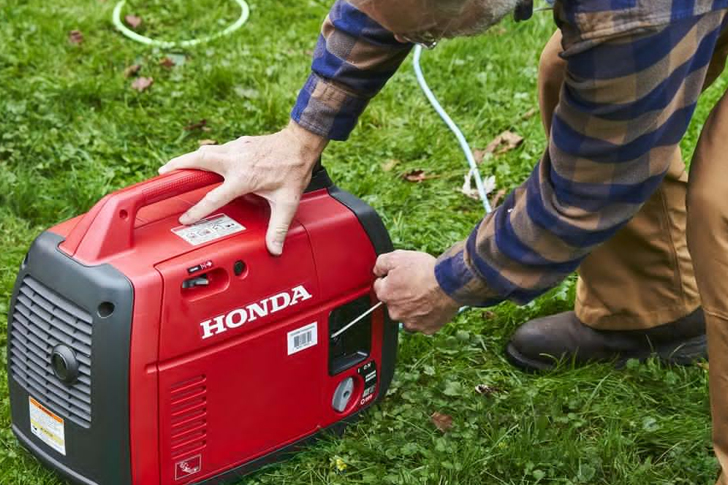Guidelines for Locating and Purchasing Unclaimed Emergency Generators
In the wake of increased emergency events such as hurricanes, floods, and power outages, the demand for emergency generators has surged significantly. For those looking to secure a reliable power source while keeping costs manageable, unclaimed emergency generators present an intriguing option. These generators have not been claimed by their intended buyers for various reasons, including overstock, order cancellation, or transport issues. This article explores practical guidelines for locating and purchasing these unclaimed units.

Understanding Unclaimed Emergency Generators
An unclaimed emergency generator is typically one that was either overstocked, miss-shipped, or never picked up by the original buyer. These generators remain in the possession of manufacturers, retailers, or warehouse operators, and are often sold at reduced prices to alleviate inventory pressure. Unlike used generators, unclaimed units are usually brand new or like-new, offering buyers nearly the full expected lifespan and reliability of the equipment without the full cost.
Researching Sources for Unclaimed Generators
The first step in acquiring an unclaimed generator is identifying where these units are available. Potential sources include manufacturer overstock, retailer clearance sales, or specialized online platforms that focus on the sale of surplus and unclaimed goods. Government surplus websites or auction platforms like GovDeals and Auctions International can also be valuable resources, as governmental bodies frequently update their emergency infrastructure, leading to surplus of perfectly usable equipment.
To start, consider subscribing to newsletters from major generator manufacturers and retailers. These newsletters often include information on sales and could provide alerts on unclaimed inventory. Additionally, maintaining regular contact with local equipment distributors can give you advanced notice before surplus equipment is listed online or sold in bulk to liquidators.
Evaluating the Condition and Specifications
When purchasing an unclaimed generator, verifying the condition and specifications is imperative. Ensure that the generator meets the specific wattage and voltage requirements for its intended use, such as powering a home during outages or functioning as a backup power source for small businesses. Most retailers and manufacturers will provide a detailed product description; scrutinize this information to confirm that the equipment is suitable for your needs.
If possible, inspect the generator in person before committing to the purchase. Check for any signs of damage or misuse, even if the generator is labeled as unclaimed or overstock. Request start-up tests to observe the generator’s function firsthand, ensuring it operates as expected under load conditions. Additionally, inquire about warranties or return policies that provide protection should the unit not perform as advertised post-purchase.
Comparing Prices and Negotiating Deals
To ensure you are getting a good deal, compare the prices of similar new and unclaimed generators. Prices for unclaimed generators can be up to 50% cheaper than their brand-new counterparts, depending largely on the brand, model, and seller. Depending on the seller’s urgency to clear out inventory, further negotiations on price might be possible. Don’t hesitate to negotiate, especially if purchasing in bulk or picking up the generator directly, which saves the seller shipping costs.
Take into account additional costs that may be associated with acquiring an unclaimed generator, such as shipping fees, installation charges, and maintenance. Some sellers may offer free shipping, while others require the buyer to handle logistics. Calculating these expenses in advance will prevent unexpected costs and ensure a cost-effective purchase.
Ensuring Legal Compliance and Proper Documentation
Before making a purchase, it is crucial to ensure that the generator complies with all relevant local regulations and environmental guidelines. This includes noise regulations, emissions standards, and safety certifications. Non-compliance can lead to fines or restrictions on use, which could negate the savings from purchasing an unclaimed unit.
Additionally, ensure that the purchase includes proper documentation, such as a receipt, proof of ownership, and any certificates that verify the generator’s compliance with standards. This paperwork is essential not only for maintaining records but also for any future warranty claims or resales.
Proper Planning for Future Needs
Finally, think long-term about the potential requirements for generator power. Consider factors like fuel type, ease of operation, portability, and storage. If you anticipate your power needs increasing, it might be advisable to opt for a generator with a little more capacity than currently necessary. However, beware of significantly overestimating needs as larger generators are more costly to operate and maintain.
Purchasing an unclaimed emergency generator can be an excellent way to secure a valuable resource at a considerable discount. By following the guidelines outlined in this article, buyers can make informed decisions that ensure they acquire a reliable, cost-effective unit that fits their specific power needs.







Recent Comments